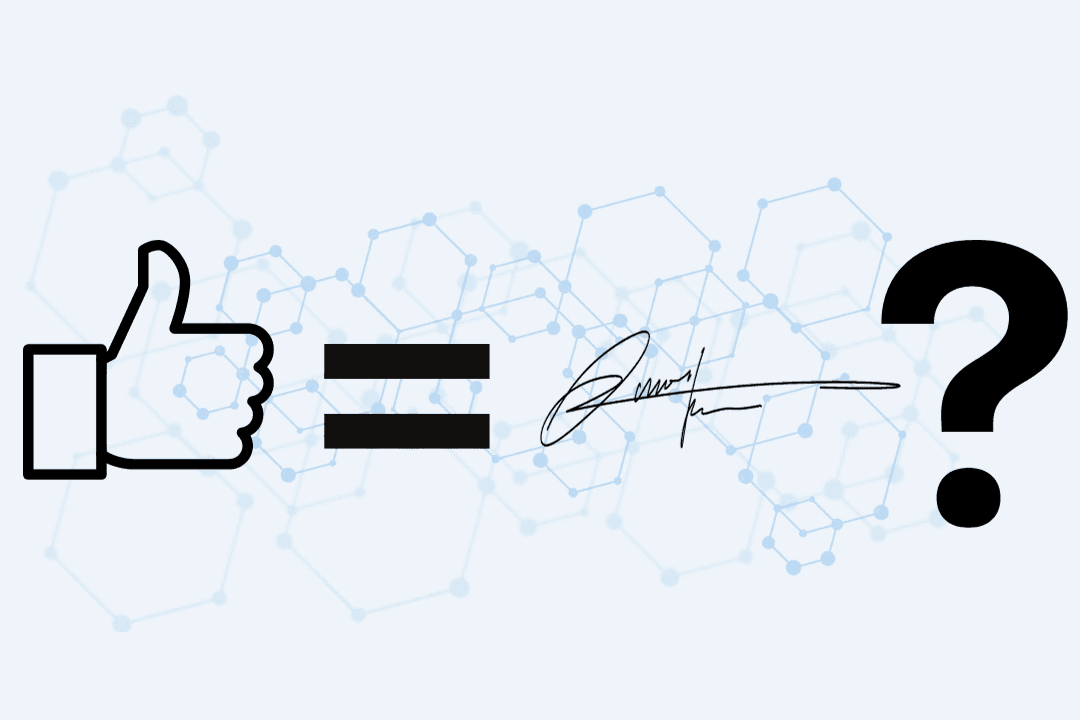A recent case in Canada has put the spotlight on what constitutes a valid form of contractual agreement in the modern era.
It involved one party sending a picture of a contract via mobile phone, with the other party responding with a ‘thumbs up’ emoji. This was intended to acknowledge receipt of the contract, rather than to signify agreement with its terms. The judge ruled that the “thumbs-up” emoji is just as valid as a signature, and in this case, ordered the sender of the emoji to pay C$82,000 ($61,442) for an unfulfilled contract.
The increased use of electronic signatures in digital interactions is changing the way customers agree to contracts, which is why clarity around issues like this is crucial.
Electronic signatures are recognised as legally binding in many jurisdictions, provided they meet authenticity and consent criteria. Intent to sign, association of the signature with relevant documents and the ability to identify the signatory are all factors that need to be robustly met.
One of the most common questions we’re still asked to this day is whether electronic signatures are legally binding?
In the overwhelming majority of cases the answer is yes, absolutely. The important thing is ensuring that the process in question signals – very clearly – to the recipient of the agreement that clicking on a button or adding their signature legally binds them. The point of no return has to be obvious. If they sign this, legal effects will ensue and they’ll have to pay for this product or service. Whether that’s clicking on something or providing an electronic signature makes little difference, as long as the consequences of doing so are transparent.
Proving the identity of the signing parties is also often a concern. It’s important to note that Scrive’s electronic signatures are much more secure than the traditional pen-and-paper method. It tends to be easier to forge an individual’s signature with ink than it is to access apps and documents on their device or computer, for example, especially when electronic identification is included in this process.
Many of the perceived security risks around electronic forgery are similar to old concerns around the safety of online card payments or in the dangers of sending sensitive information via email. No one hesitates to do either of those things anymore and e-signatures are every bit as secure.
Will emojis be considered legally binding from now on?
The icon could potentially signify agreement, yes, but it would depend significantly on individual jurisdictions, contexts, and circumstances. Factors including prior interactions, understanding of the emoji and clarity of intent would all need to be considered.
It’s important to note that contract law can vary significantly from one jurisdiction to another, and legal standards and interpretations can change over time. If you are dealing with a specific legal situation, it’s always best to consult with a qualified legal professional who can provide advice tailored to your circumstances and the applicable laws in your jurisdiction.



